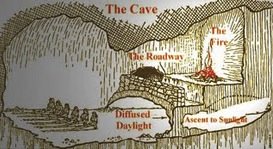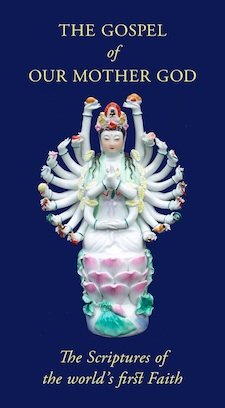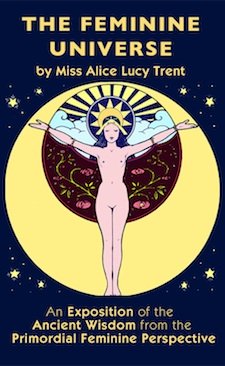George Lakoff, Metaphor and Metaphysics
 Plato's parable of the cave shows the things of physical life as shadows of metaphysical Reality
Plato's parable of the cave shows the things of physical life as shadows of metaphysical RealityThere are very few things we can really talk about without using metaphors. We can only talk about time, for example, in terms of space.
But what if, in fact, this goes much further? What if the very things we see about us – the physical elements of being from which we draw our metaphors – are themselves metaphors of something that transcends them?
George Lakoff's work in the 1980s on cognitive linguistics has, in many of its essentials, changed the thinking of linguistics in general among modern western academics. Essentially he pointed out, with much evidence, that there is really very little that constitutes "literal" discussion of even remotely abstract subjects. Almost everything we say is, and has to be, drawn from physical analogies.
As a UCLA web site puts it:
What is striking when one examines Lakoff's painstaking lists of metaphors is how completely immersed we are in them, and how our thinking is enabled by them. It is perhaps impossible to say many things literally: there are simply no appropriate conceptual primitives. How, for instance, do you speak of the high points in your life literally? The very narrative assumes the metaphorical mapping.We continually talk of intelligence in terms of light, time in terms of spatial movement, various life-processes (love, business, politics) in terms of a journey (and we would add, ultimately The Journey).
There is what George Lakoff would term a "folk belief" among most people that we could translate these metaphors back into their literal sense, their "pure meaning", at any time, but in fact that is simply untrue. All our ways of discussing them are metaphorical. Outside mathematics, we do not possess and cannot possess a non-metaphorical language for dealing with abstract concepts.
In terms of the current western "evolutionary" narrative, this has a very natural story-interpretation. We were once animals who ate, slept, moved from place to place, saw light and darkness etc., but had no "spiritual" life, and essentially that is what we still are. All our "higher" (note the unavoidable spatial metaphor) aspirations are simply sublimations of our animal nature.
However, George Lakoff's ideas are actually not new at all. They are only new to the rather naive world of the modern west. The understanding of metaphor and its essential nature has always been found in the metaphysical thinking of more traditional civilizations. If you are interested, you may wish to compare the opening paragraphs of "The Contemporary Theory of Metaphor" by George Lakoff with "A Figure of Speech or a Figure of Thought" by Ananda Coomaraswamy (written long before George Lakoff attended a university). Both begin by discussing "literary metaphor" and broaden out into the nature and necessity of metaphor in all our thinking. The difference is that while George Lakoff essentially traces our abstract thought back to our physical life, Ananda Coomaraswamy cites authorities from ancient civilization, west and east, to show the fundamental metaphysical basis of metaphor.
Once we understand the fundamentally metaphorical nature of our thought and its metaphysical bases, many things begin to become clearer. We begin to see that the physical world is not just a series of accidents, but a reflection of ultimate Reality. The metaphysical basis of metaphor is the understanding that the physical manifestations of life – distance, objects, rivers, trees, journeys light and darkness, etc. are not simply "accidents" from which we draw metaphors, but are metaphors themselves.
When we use physical life as a metaphor for abstract concepts in a non-traditional way, we are simply taking advantage of the fact that, because these metaphorical structures are universal, they can be applied at just about any level, with consistency and accuracy, to just about anything.
On the other hand, when we consciously use and understand metaphor in terms of traditional metaphysics, we are returning the inherent metaphors of physical life to their true, transcendent, meaning. We do not do this by "paraphrasing" them into some non-metaphorical abstract language, because, as modern linguistics has proved, and traditional linguistics always knew, there is, and can be, no such thing.
But we are entering into the real nature of the metaphor that is physical life; or, in Platonic terms, seeing beyond the earthly shadows of things to the Ideal Forms, or Essential Truths, that lie underlie them.
See also:
Metaphysics: the infrastructure of a religious understanding
The Metaphysical Meaning of Color
The Traditional World View vs the Modern World View
Please support the Chapel of Our Mother God
Send Questions or Comments on the George Lakoff, Metaphor and Metaphysics
Chapel of Our Mother God Homepage
All written material at the Chapel of Our Mother God is copyright. Should you wish to reproduce any portion please contact us for permission.
Facebook or YouTube
![]()
This section:
Metaphysics
Gospel of Our Mother God
The Gospel of Our Mother God is a collection of inspirational texts, prayers and daily inspiration for the Mother-Faith devotee or household.
The Feminine Universe
The Other Philosophy
Everything you have ever heard comes out of the patriarchal world-view. Its materialism, its religion, even its feminism. Here is the other way of seeing the world; the natural way: the way that everyone saw things before patriarchy and will again when patriarchy is long forgotten.

